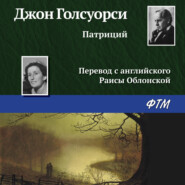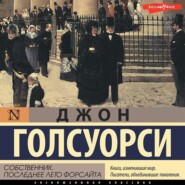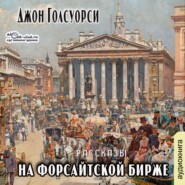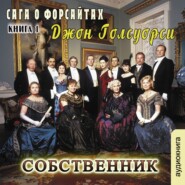По всем вопросам обращайтесь на: info@litportal.ru
(©) 2003-2024.
✖
The Complete Essays of John Galsworthy
Настройки чтения
Размер шрифта
Высота строк
Поля
Behind us, from the three mountains, came the frequent thud and scuffle of falling rocks, loosened by rains. The wind, mist, and winter snow had ground the powdery stones on which we lay to a pleasant bed, but once on a time they, too, had clung up there. And very slowly, one could not say how or when, the sense of joy began changing to a sense of fear. The awful impersonality of those great rock-creatures, the terrible impartiality of that cold, clinging wind which swept by, never an inch lifted above ground! Not one tiny soul, the size of a midge or rock flower, lived here. Not one little “I” breathed here, and loved!
And we, too, some day would no longer love, having become part of this monstrous, lovely earth, of that cold, whiffling air. To be no longer able to love! It seemed incredible, too grim to bear; yet it was true! To become powder, and the wind; no more to feel the sunlight; to be loved no more! To become a whiffling noise, cold, without one’s self! To drift on the breath of that noise, homeless! Up here, there were not even those little velvet, grey-white flower-comrades we had plucked. No life! Nothing but the creeping wind, and those great rocky heights, whence came the sound of falling-symbols of that cold, untimely state into which we, too, must pass. Never more to love, nor to be loved! One could but turn to the earth, and press one’s face to it, away from the wild loveliness. Of what use loveliness that must be lost; of what use loveliness when one could not love? The earth was warm and firm beneath the palms of the hands; but there still came the sound of the impartial wind, and the careless roar of the stories falling.
Below, in those valleys amongst the living trees and grass, was the comradeship of unnumbered life, so that to pass out into Peace, to step beyond, to die, seemed but a brotherly act, amongst all those others; but up here, where no creature breathed, we saw the heart of the desert that stretches before each little human soul. Up here, it froze the spirit; even Peace seemed mocking – hard as a stone. Yet, to try and hide, to tuck one’s head under one’s own wing, was not possible in this air so crystal clear, so far above incense and the narcotics of set creeds, and the fevered breath of prayers and protestations. Even to know that between organic and inorganic matter there is no gulf fixed, was of no peculiar comfort. The jealous wind came creeping over the lifeless limestone, removing even the poor solace of its warmth; one turned from it, desperate, to look up at the sky, the blue, burning, wide, ineffable, far sky.
Then slowly, without reason, that icy fear passed into a feeling, not of joy, not of peace, but as if Life and Death were exalted into what was neither life nor death, a strange and motionless vibration, in which one had been merged, and rested, utterly content, equipoised, divested of desire, endowed with life and death.
But since this moment had come before its time, we got up, and, close together, marched on rather silently, in the hot sun.
1910.
MY DISTANT RELATIVE
Though I had not seen my distant relative for years – not, in fact, since he was obliged to give Vancouver Island up as a bad job – I knew him at once, when, with head a little on one side, and tea-cup held high, as if, to confer a blessing, he said: “Hallo!” across the Club smoking-room.
Thin as a lath – not one ounce heavier – tall, and very upright, with his pale forehead, and pale eyes, and pale beard, he had the air of a ghost of a man. He had always had that air. And his voice – that matter-of-fact and slightly nasal voice, with its thin, pragmatical tone – was like a wraith of optimism, issuing between pale lips. I noticed; too, that his town habiliments still had their unspeakable pale neatness, as if, poor things, they were trying to stare the daylight out of countenance.
He brought his tea across to my bay window, with that wistful sociability of his, as of a man who cannot always find a listener.
“But what are you doing in town?” I said. “I thought you were in Yorkshire with your aunt.”
Over his round, light eyes, fixed on something in the street, the lids fell quickly twice, as the film falls over the eyes of a parrot.
“I’m after a job,” he answered. “Must be on the spot just now.”
And it seemed to me that I had heard those words from him before.
“Ah, yes,” I said, “and do you think you’ll get it?”
But even as I spoke I felt sorry, remembering how many jobs he had been after in his time, and how soon they ended when he had got them.
He answered:
“Oh, yes! They ought to give it me,” then added rather suddenly: “You never know, though. People are so funny!”
And crossing his thin legs, he went on to tell me, with quaint impersonality, a number of instances of how people had been funny in connection with jobs he had not been given.
“You see,” he ended, “the country’s in such a state – capital going out of it every day. Enterprise being killed all over the place. There’s practically nothing to be had!”
“Ah!” I said, “you think it’s worse, then, than it used to be?”
He smiled; in that smile there was a shade of patronage.
“We’re going down-hill as fast as ever we can. National character’s losing all its backbone. No wonder, with all this molly-coddling going on!”
“Oh!” I murmured, “molly-coddling? Isn’t that excessive?”
“Well! Look at the way everything’s being done for them! The working classes are losing their self-respect as fast as ever they can. Their independence is gone already!”
“You think?”
“Sure of it! I’ll give you an instance – ” and he went on to describe to me the degeneracy of certain working men employed by his aunt and his eldest brother Claud and his youngest brother Alan.
“They don’t do a stroke more than they’re obliged,” he ended; “they know jolly well they’ve got their Unions, and their pensions, and this Insurance, to fall back on.”
It was evidently a subject on which he felt strongly.
“Yes,” he muttered, “the nation is being rotted down.”
And a faint thrill of surprise passed through me. For the affairs of the nation moved him so much more strongly than his own. His voice already had a different ring, his eyes a different look. He eagerly leaned forward, and his long, straight backbone looked longer and straighter than ever. He was less the ghost of a man. A faint flush even had come into his pale cheeks, and he moved his well-kept hands emphatically.
“Oh, yes!” he said: “The country is going to the dogs, right enough; but you can’t get them to see it. They go on sapping and sapping the independence of the people. If the working man’s to be looked after, whatever he does – what on earth’s to become of his go, and foresight, and perseverance?”
In his rising voice a certain piquancy was left to its accent of the ruling class by that faint twang, which came, I remembered, from some slight defect in his tonsils.
“Mark my words! So long as we’re on these lines, we shall do nothing. It’s going against evolution. They say Darwin’s getting old-fashioned; all I know is, he’s good enough for me. Competition is the only thing.”
“But competition,” I said, “is bitter cruel, and some people can’t stand against it!” And I looked at him rather hard: “Do you object to putting any sort of floor under the feet of people like that?”
He let his voice drop a little, as if in deference to my scruples.
“Ah!” he said; “but if you once begin this sort of thing, there’s no end to it. It’s so insidious. The more they have, the more they want; and all the time they’re losing fighting power. I’ve thought pretty deeply about this. It’s shortsighted; it really doesn’t do!”
“But,” I said, “surely you’re not against saving people from being knocked out of time by old age, and accidents like illness, and the fluctuations of trade?”
“Oh!” he said, “I’m not a bit against charity. Aunt Emma’s splendid about that. And Claud’s awfully good. I do what I can, myself.” He looked at me, so queerly deprecating, that I quite liked him at that moment. At heart – I felt he was a good fellow. “All I think is,” he went on, “that to give them something that they can rely on as a matter of course, apart from their own exertions, is the wrong principle altogether,” and suddenly his voice began to rise again, and his eyes to stare. “I’m convinced that all this doing things for other people, and bolstering up the weak, is rotten. It stands to reason that it must be.”
He had risen to his feet, so preoccupied with the wrongness of that principle that he seemed to have forgotten my presence. And as he stood there in the window the light was too strong for him. All the thin incapacity of that shadowy figure was pitilessly displayed; the desperate narrowness in that long, pale face; the wambling look of those pale, well-kept hands – all that made him such a ghost of a man. But his nasal, dogmatic voice rose and rose.
“There’s nothing for it but bracing up! We must cut away all this State support; we must teach them to rely on themselves. It’s all sheer pauperisation.”
And suddenly there shot through me the fear that he might burst one of those little blue veins in his pale forehead, so vehement had he become; and hastily I changed the subject.
“Do you like living up there with your aunt?” I asked: “Isn’t it a bit quiet?”
He turned, as if I had awakened him from a dream.
“Oh, well!” he said, “it’s only till I get this job.”
“Let me see – how long is it since you – ?”
“Four years. She’s very glad to have me, of course.”
“And how’s your brother Claud?”
“Oh! All right, thanks; a bit worried with the estate. The poor old gov’nor left it in rather a mess, you know.”
“Ah! Yes. Does he do other work?”

















